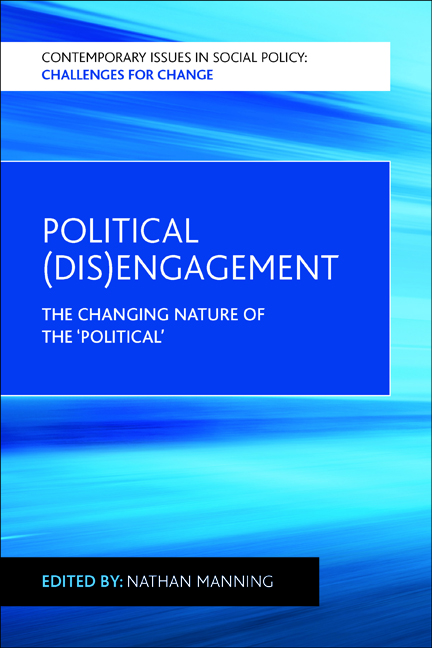ten - Political participation is self-interest … but not in the way you might think
Published online by Cambridge University Press: 11 March 2022
Summary
Introduction
Our argument in this chapter is very simple. People participate politically when it is in their interest to do so.
This may not be a wise way to start. Already, much of our audience will be alienated and many may be drifting away. On the one hand, the statement seems so bland as to be meaningless. Of course people participate because it is in their interest to do so. Everything people do, they do because it is in their interest. So the statement tells us nothing unless we are in a position to specify what these interests are and how they play out in specific contexts, from voting to joining a political party to participating in a demonstration. This is a position we have some sympathy with.
On the other hand, the statement can be rejected as palpably untrue. As many commentators have pointed out, most people vote in the certain knowledge that their individual vote will have no effect on the outcome and that all the effort involved in going to the polling station and casting their ballot will bring them no individual benefit at all. If the idea of acting in one's individual interest falls at such a low hurdle, how can it be of any use when dealing with more complex political acts? What of those in Timisoara, years ago during the Romanian revolution of 1989, and those in Kiev in 2014, as we write, who are prepared to risk their very lives in political action? Were they – are they – really acting in terms of dry calculations of what they have to gain from their sacrifices? Surely not. This is a position with which we have even more sympathy.
But now we have created another problem for ourselves. How can we agree both that everything is a matter of acting in one's interests and also that acting in one's interests explains little or nothing? Are we not a perfectly lubricated academic weathervane? Well, no. The problem here lies less with us than with the way that the term ‘interest’ is commonly understood and used in explaining human action in general, and political participation in particular.
In the social sciences, the notion of ‘interest’ is primarily associated with rational choice theory (Downs, 1957; Homans, 1961; Elster, 1986). This assumes that human beings act to maximise individual utility. Utility is, of course, a very tricky concept.
- Type
- Chapter
- Information
- Political (Dis)EngagementThe Changing Nature of the 'Political', pp. 217 - 238Publisher: Bristol University PressPrint publication year: 2015



